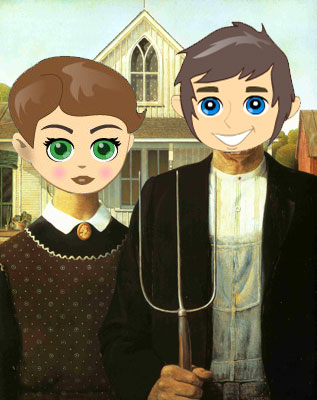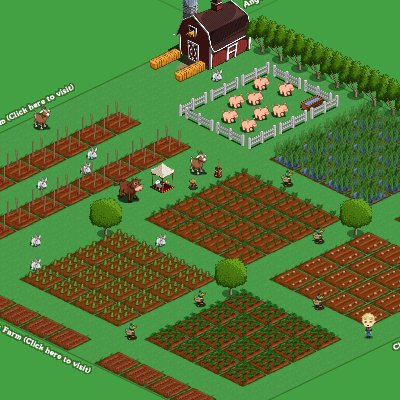This post has not been edited by the GamesBeat staff. Opinions by GamesBeat community writers do not necessarily reflect those of the staff.
 With so much talk about FarmVille, I felt like it was something that I needed to play to understand why it was popular. I had my own theories for why people played FarmVille, especially after reading A. J. Partick Liszkiewicz article a few months back, but figured that I probably wouldn’t understand it without actually trying it out. So about two months ago I started playing, and recently I started playing Zynga’s new Facebook game FrontierVille, and I think I’ve got an understanding now of what gets people to play these games.
With so much talk about FarmVille, I felt like it was something that I needed to play to understand why it was popular. I had my own theories for why people played FarmVille, especially after reading A. J. Partick Liszkiewicz article a few months back, but figured that I probably wouldn’t understand it without actually trying it out. So about two months ago I started playing, and recently I started playing Zynga’s new Facebook game FrontierVille, and I think I’ve got an understanding now of what gets people to play these games.
As Liszkiewicz says in his article, what gets people to play is social obligation. People get pulled into playing by their real life friends that are already playing. FarmVille requires you to have more neighbors, or friends, connected to your farm in order to open up access to more items and crops. This incentivizes you as the player to get your friends to play the game, and they join because as a friend they wish to help you in playing the game. They then turn around and do the same thing with their friends, ad infinitum.
This social obligation also can keep them playing once they start due to the gifting system in FarmVille, where neighbors are able to send each other gifts that can give them new animals, or objects for their farms. Again this plays on people wanting to help their friends by sending them things that will help them with their farm, and by playing and leveling their farm player’s gain access to better gifts that they are able to give.
Now because of the popularity of the game there is also a social currency aspect involved as well. By which I mean people use their familiarity in playing the game in social situations, such as over hearing people talking about FarmVille and then using that to introduce oneself or showing off the rare new object you found on your farm to your other FarmVille friends. The latter is one of the things that helps drive people to spend money on the game, since most of the items in the game (especially the cool looking or limited edition ones,) can only be acquired by spending real money.
This third reason for why they play is related to gratification, both in the short term and the long term. What I mean is that the game is built around you feeling gratification for what you are doing, whether it’s leveling up, or earning a ribbon (their form of achievements,) or mastering a crop. It’s all about making you feel rewarded you for playing.
Initially when starting you receive a lot of short term gratification in the form of levels, and ribbons. Which comes rather quick and easy, but as you play more and more there are fewer and fewer short term gratifications and more and more long term ones. For instance with the ribbons they have four levels to them. The first level for one is to harvest ten crops, the next level is 1,000, then 5,000, then 25,000.
It is set up this way to interest players during the early portion of the game, while they are figuring things out they feel as though they are achieving a lot. But then as the game progresses it goes away, because when you have constant gratification like that it can get old and stale. While long term gratifications mean that you have been working on something for a while in order to achieve it, and in doing so you get more of a feeling of accomplishment then you would with a shorter term one since it was something you had to do more work for.
Overall it’s a very narrow and shallow game experience, so much so I’ve debated calling it a toy instead of a game. This isn’t to say that there isn’t enjoyment to be had with it, but that there isn’t much in the way of thinking involved in the game. The most thinking involved seems to be determining which crop will have the greatest experience and money yield for the amount of time it takes to grow. If the game had more depth to it, and required more critical thinking , it could be a more enjoyable experience. This, in turn, could attract people to play it with an interesting experience rather than preying on a person’s real world relationships for players.
